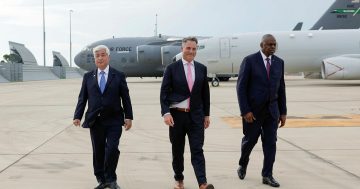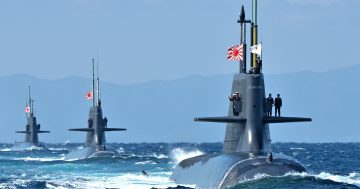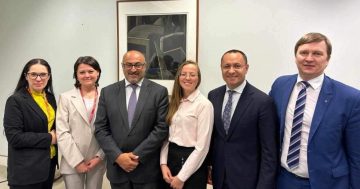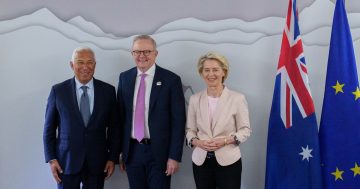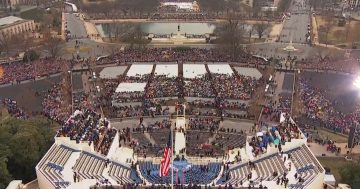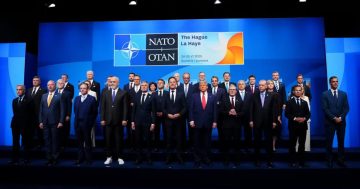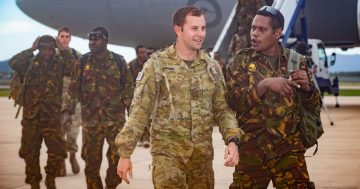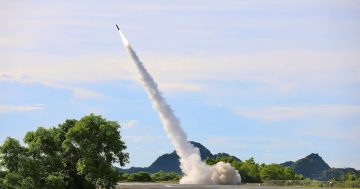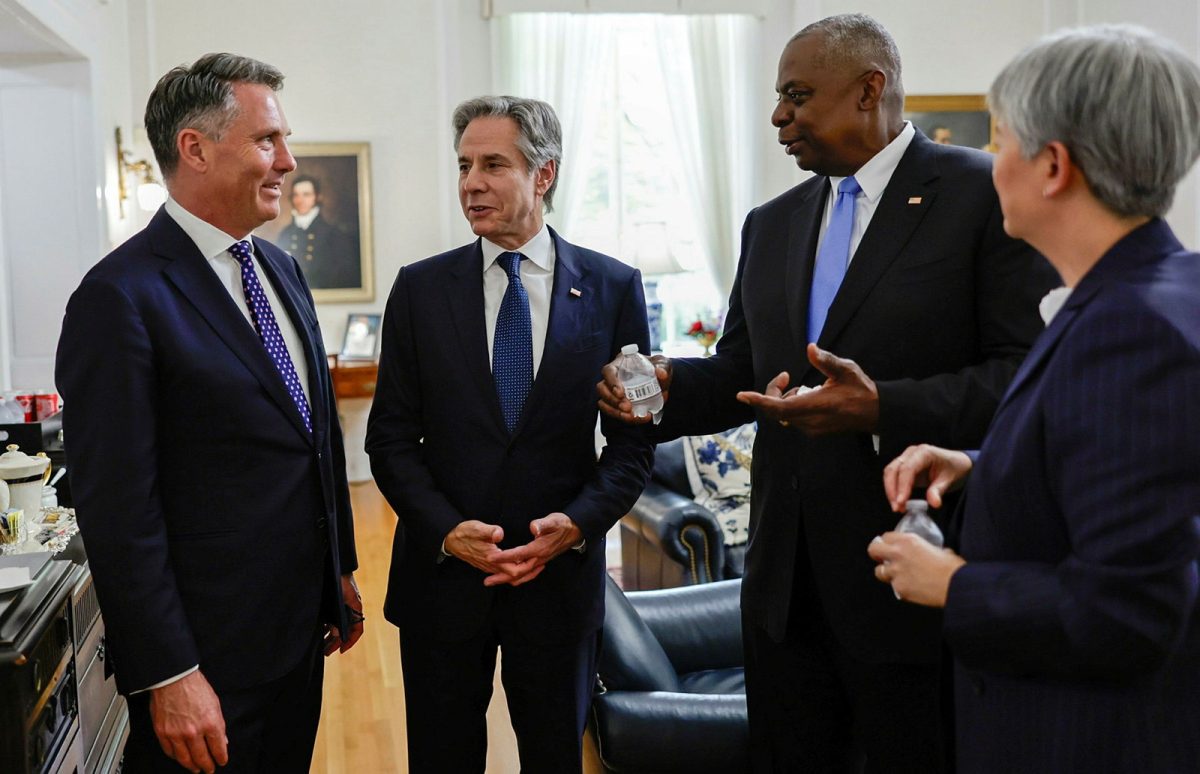
At the AUSMIN meeting in Maryland were (from left) Deputy Prime Minister Richard Marles, US Secretary of State Anthony Blinken, US Defense Secretary Lloyd Austin and Foreign Minister Senator Penny Wong. Photo: ADF.
When Australia and the United States held the 34th annual Australia-United States Ministerial Consultations (AUSMIN) this month the focus was clearly on the two countries’ increasing concerns about global security, and growing cooperation in defence through AUKUS and other partnerships.
At the talks in Maryland, Australia was represented by Deputy Prime Minister and Defence Minister Richard Marles and Foreign Minister Senator Penny Wong, while the US Secretary of State Anthony Blinken and Defense Secretary Lloyd Austin hosted the meeting.
After the meeting, a 5000-word joint statement affirmed or reaffirmed:
- Australia’s endorsement of the US’s Framework to Counter Foreign State Information Manipulation.
- The establishment of the Australia-US Landsat Next Partnership between Geoscience Australia and the US Geological Survey.
- Australia’s continued progression in joining the US Global Entry Program to provide streamlined entry for Australian citizens to the US.
- A commitment to conclude a framework agreement for cooperation on civil space activities, including NASA’s Artemis program.
- Signing of an MoU by Australia’s DFAT and US Department of State Diplomatic Security to establish exchanges in technical security, cyber security, and threat analysis.
- Progress by the Australia-US Critical Minerals Taskforce (CMTF) to pursue secure and diverse critical mineral supply chains.
In the Indo-Pacific, Australia and the US committed to ensuring an Indo-Pacific that is open, stable, peaceful and prosperous; promotes and protects human rights; and is respectful of sovereignty and international law.
They said this would be achieved by promoting shared priorities including sustainable development; climate change cooperation; security and conflict prevention; cyberspace, digital economy, technology and connectivity; good governance; health security and resilience; and timely, effective and inclusive humanitarian assistance and disaster relief.
The principals also recommitted to efforts to address the climate crisis, advance the clean energy transition, and build climate resilience.
On defence and security cooperation, the two countries noted the following:
- The upgrades at several Australian bases including RAAF Darwin and Tindal in the NT, Scherger in QLD, Learmonth in WA, and Cocos Island are welcomed by the US.
- Progress on the alignment of export controls between the three AUKUS partners was welcomed.
- Strong progress has been made in implementing the AUKUS optimal pathway and a recommitment to Australia’s acquisition of nuclear-powered submarines.
- Progress has also been made on AUKUS Pillar II capabilities, and the consideration of cooperation with Japan on some of the Pillar II capabilities.
- A commitment to greater collaboration between Australia’s Advanced Strategic Capabilities Accelerator (ASCA) and the US Defense Innovation Unit (DIU).
- A commitment to streamline cooperation on missile and uncrewed aerial vehicle (UAV) technologies, particularly for Australia’s Guided Weapons and Explosive Ordnance (GWEO) Enterprise and AUKUS Pillar II capabilities.
- To progress an MoU by the end of 2024 for the assembly of GMLRS missile rounds for the HIMARS system in Australia, with follow-on mechanisms for co-production of GLMRS and the new Precision Strike Missile (PrSM) in the future.
- Both countries welcomed the July signing of a joint Statement of Intent on Integrated Air and Missile Defense and committed to future joint priorities to co-develop integrated air and missile defence (IAMD) capabilities.
- Collaborative efforts to develop air-launched hypersonic weapons under the Southern Cross Integrated Flight Research Experiment (SCIFiRE) program are making significant progress, leading to Australia participating in the flight test program of Hypersonic Attack Cruise Missile (HACM), and a pathway to Australia potentially acquiring HACMs in the future.
- Opportunities to expand cooperation on maintenance, repair, overhaul and upgrade (MRO&U) of US capabilities.
Global security was also discussed, with both parties reiterating their condemnation of the Hamas attack on Israel last October, and the need for both parties in Gaza to adhere to their obligations under international humanitarian law, including the protection of civilians and humanitarian workers.
They also condemned Iran’s “destabilising” behaviour in the Middle East, and its supply of weapons to Houthi, Hezbollah and Hamas terror groups, and to Russia.
They also strongly condemned “Russia’s illegal and immoral war against Ukraine”, and called for the immediate withdrawal of its forces from Ukraine.
Mr Marles said Australia’s alliance with the US remained fundamental to its national security.
“We continue to work with the United States on ways to deepen and broaden our alliance, including through the longstanding US Force Posture Initiatives in Australia,” he said.
Senator Wong said the visit was an opportunity for action to take the alliance forward.
“Australia and the United States are finding new areas for cooperation and collaboration that will not only boost our own resilience and prosperity but will also deliver for a peaceful Indo-Pacific,” she said.
“Australia and the United States are committed to building a peaceful, stable and prosperous region.”


